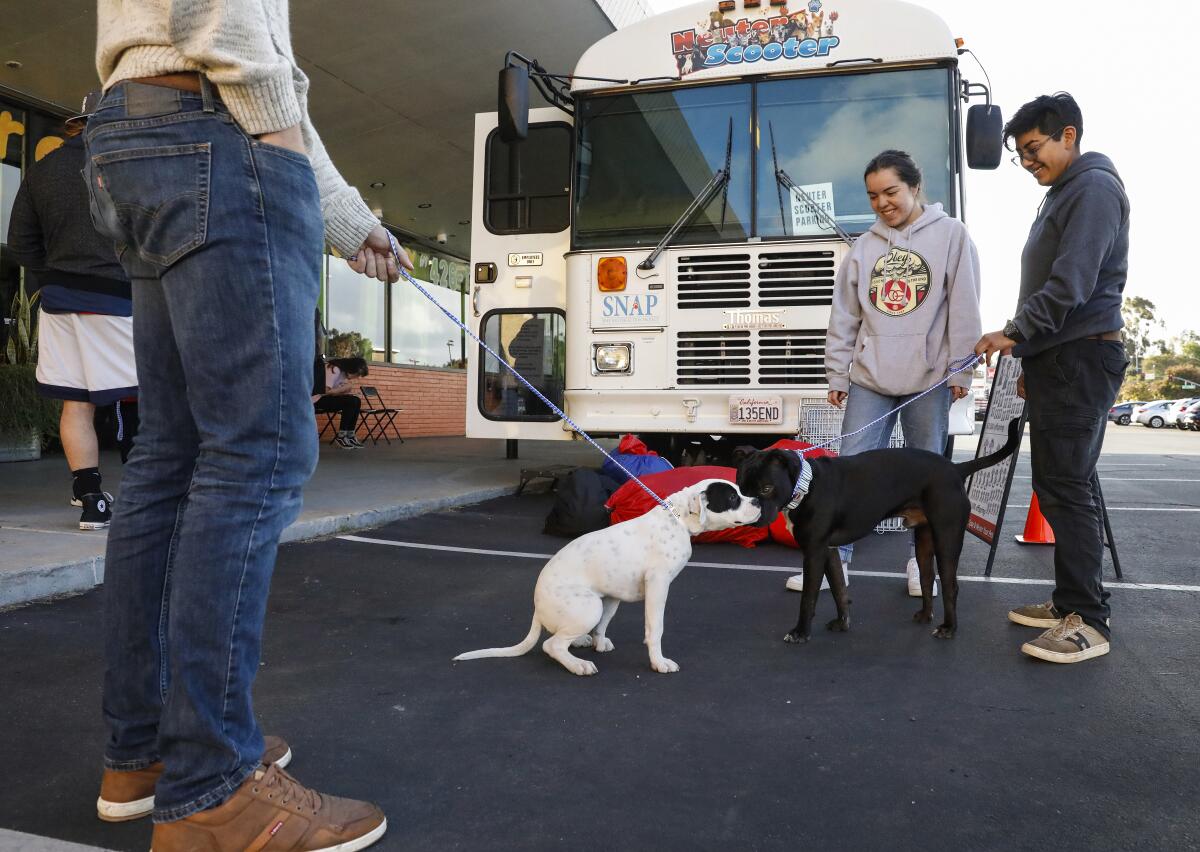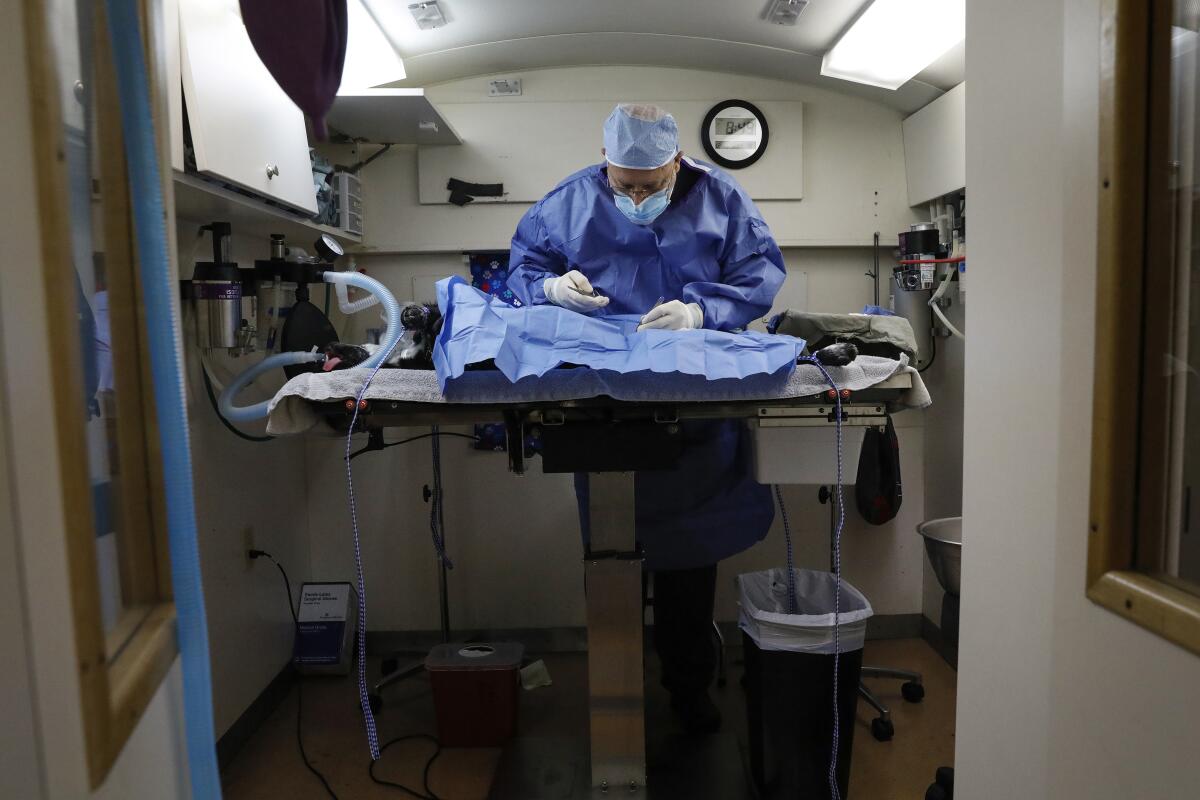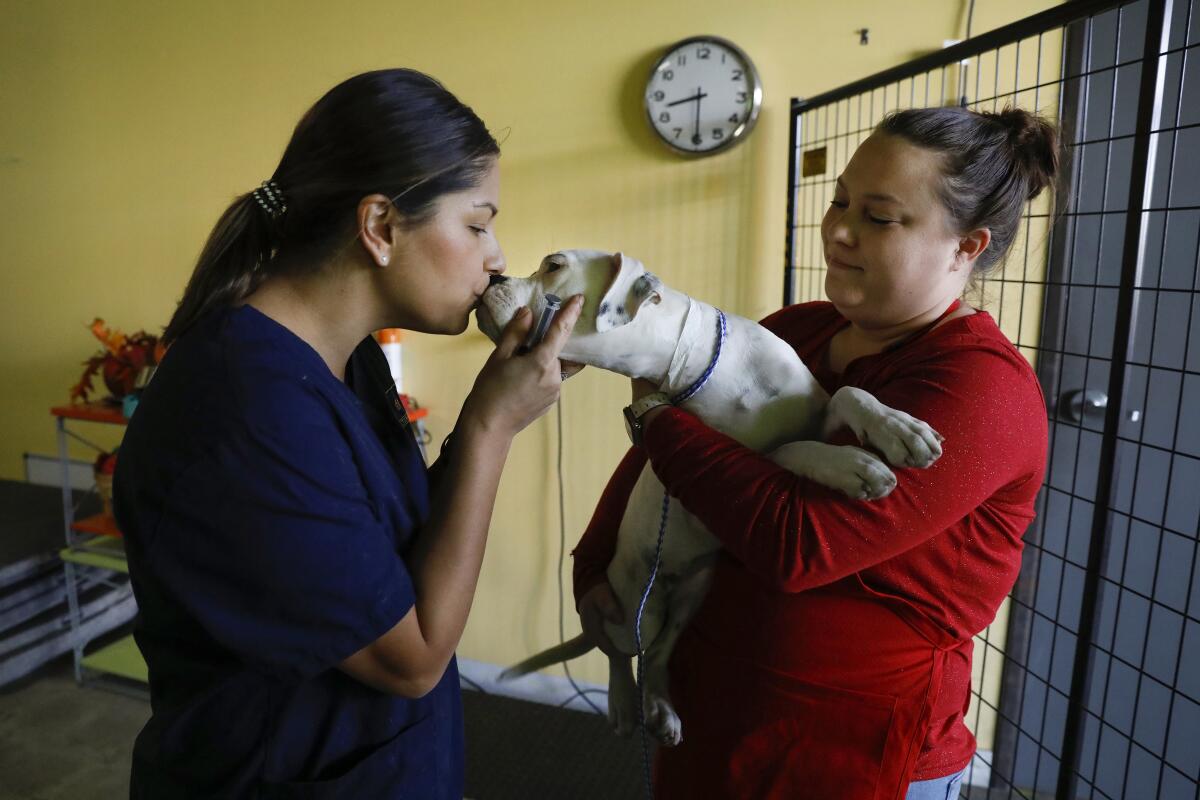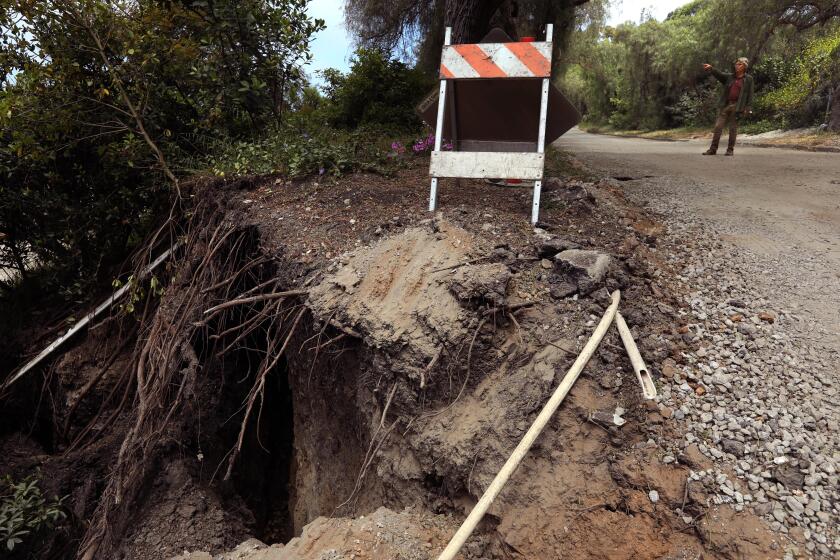Animal welfare nonprofit looks to increase its capacity with new bus, voucher program

Spay-Neuter Action Project continues to serve pets in low-income communities
Victor Gutierrez already has two pit bulls, and he doesn’t want any more puppies running around his Mira Mesa home. So he brought his 8-month-old, 65-pound pit bull Cali to the “Neuter Scooter,” a low-cost spaying and neutering mobile clinic that caters to low-income pet owners.
For $40, Gutierrez was able to get Cali spayed at a price he could afford. The black-and-white pooch also got a free nail trim, flea medication, e-collar and rabies vaccine, and was sent home with pain medication.
The animal welfare nonprofit Spay-Neuter Action Project, or SNAP, organizes the spay and neuter clinics all over San Diego County. SNAP lost its primary source of funding when the county gave up animal control services last year, but it’s possible some of that funding will be restored under the new animal control service provider.
The recent clinic held in Chula Vista served 25 large dogs, a majority of which were pit bull and mixed shepherd breeds.
The organization focuses on providing services to low-income pet owners as well as those who don’t have access to transportation.
SNAP is raising funds to design and purchase a second, customized surgical bus, estimated to cost $300,000. Having a second bus will allow the nonprofit to offer more spay and neuter services to pets in southeastern San Diego, South Bay, Escondido and Fallbrook. Staff say they receive a lot of calls from those areas.

The nonprofit was awarded a $145,000 matching grant from PetSmart Charities to help pay for the bus. SNAP has already raised nearly half the amount through private donations and is in the process of raising approximately $16,450 before the end of the year.
Executive Director Dorell Sackett said SNAP receives an average of 60 to 90 calls a day for services, but can only accept 10% of those procedures.
One reason is because they have only one bus, which accommodates 19 small to medium pets and four large dogs.
Another reason is those clinics are a money-loser for the organization.
The cost of a procedure through SNAP for pet owners can range from no cost to $100 for an 80-pound female dog.
“Every surgery, every clinic is a loss,” said Sackett, adding that the same procedure with a private vet can cost up to $800.
SNAP was founded in 1990 by a group of women who believed that in order to reduce the number of euthanized animals in shelters, pet overpopulation in San Diego County needed to be addressed, Sackett said.
In 2003, SNAP launched its surgical bus and traveled to communities that needed affordable spay and neutering services the most.
Four years later, the nonprofit began accepting county vouchers given to low-income pet owners who could use them as cash to pay for spay and neutering procedures. Those vouchers helped the nonprofit recover its costs.
The value of the vouchers ranged from $25 to $100 depending on the animal and its sex.

According to the county, from July 2013 to June 2018, when the program ended, the value of the vouchers was approximately $965,000.
Not having the program has been hard on the nonprofit, Sackett said.
She said SNAP lost up to $40,000 annually in voucher income. SNAP ran up to 22 clinics a month, which had to be cut almost in half when the program ended.
The county scaled back its animal control services, so cities sought contracts with other organizations. The new animal services provider for 12 cities in the county is the San Diego Humane Society.
The Humane Society does not currently offer the voucher program, but it recently agreed to revive the program following a contract extension with the city of San Diego.
That gives Sackett some hope.
SNAP recently organized clinics and an improvised voucher program in collaboration with Councilwoman Vivian Moreno. They performed 130 surgeries and collected approximately $9,000 from September to December.
SNAP is funded through private grants and donations. This year, SNAP has spayed and neutered 3,500 pets.
“If we didn’t do it, what is the outcome?” Sackett said, pointing to the owner of a white and gray pit bull. “Just by fixing her pit bull right there we just prevented lives from being born unwanted and being euthanized.”
The organization hosts special big dog clinics, such as the one on Dec. 15, with the help of dog day care center Camp Run-a-Mutt in Chula Vista that lets them use space in the building as a recovery area.
Twenty-two kennels covered in different colored blankets covered the floor of the day care. One by one, sedated dogs were placed inside the kennels and volunteers sat nearby.
Jill Lozier, who sits on the SNAP board of directors, said it was touching to see how much families love their pets. They shared quirky stories about their pets as she checked them in for their surgeries.
“It’s important to help people become responsible dog owners,” she said.
Lopez-Villafaña writes for the San Diego Union-Tribune.
More to Read
Sign up for Essential California
The most important California stories and recommendations in your inbox every morning.
You may occasionally receive promotional content from the Los Angeles Times.







